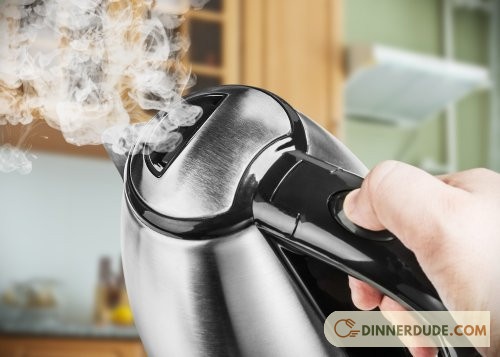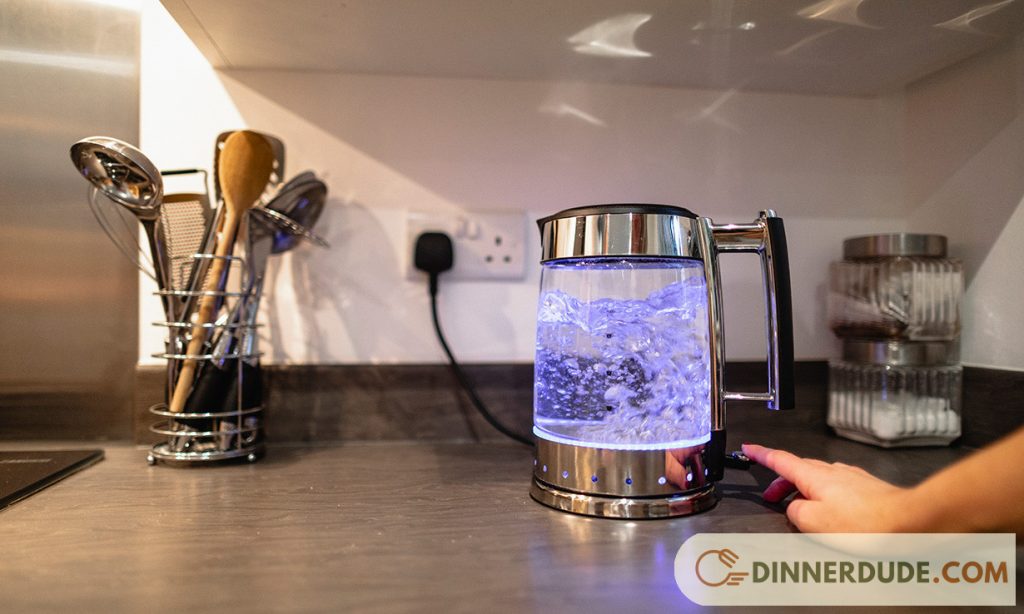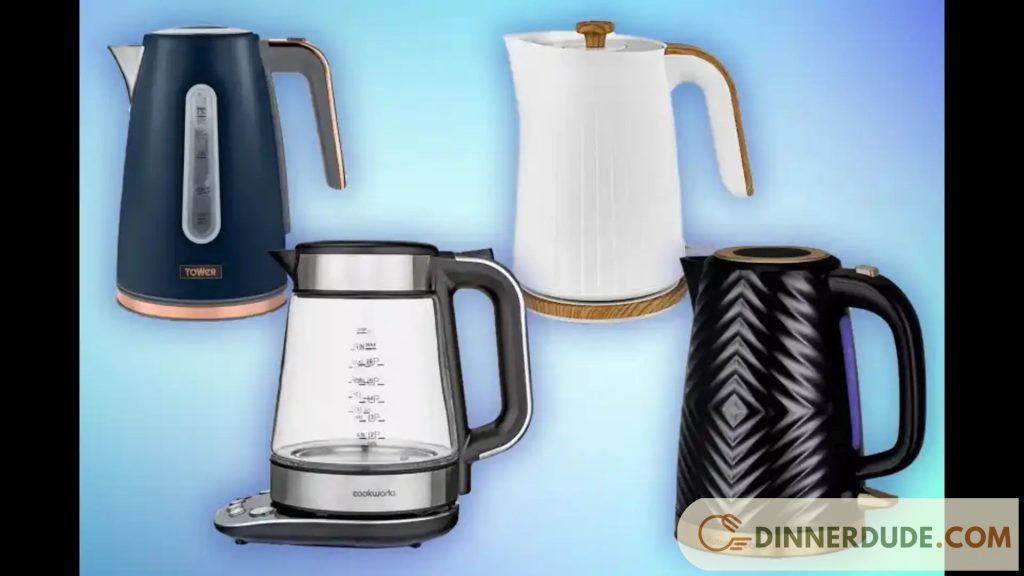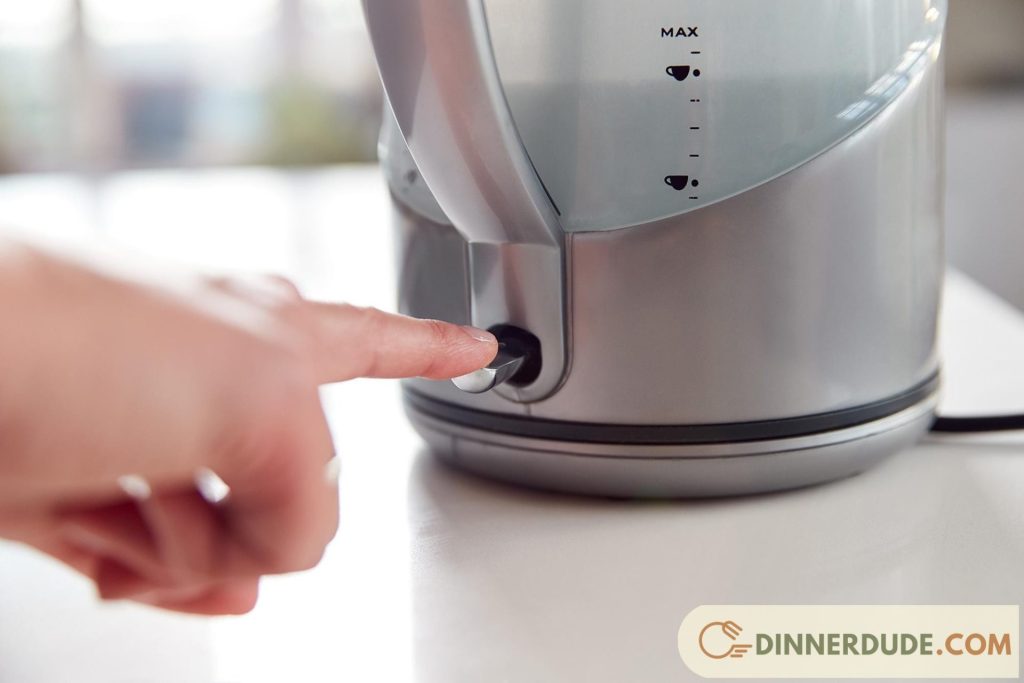Embark on a journey of kitchen efficiency with Dinnerdude as we unravel the debate: Is an electric kettle more energy efficient? In this exploration, we’ll dissect the factors that make electric kettles stand out in the realm of energy conservation, comparing their performance to traditional stovetop methods.
Join us in understanding the nuances that make electric kettles not just a convenient choice but potentially a greener option for your daily hot beverage rituals.

The Working Mechanism of an Electric Kettle
Before we delve into the energy efficiency of electric kettles, it’s essential to understand how they work. An electric kettle consists of a water container with an integrated heating element.
When you switch on the kettle, electrical energy is converted into heat energy by the heating element. The heat energy then increases the water’s temperature until it reaches the boiling point, at which point the kettle automatically switches off.
Is an electric kettle more energy efficient?

Several factors determine how energy efficient an electric kettle is. These include the kettle’s material, design, and the volume of water heated.
For example, kettles made from materials with high thermal conductivity, such as copper, are typically more energy efficient than those made from materials with lower thermal conductivity, like plastic.
Additionally, kettles designed to heat only a small amount of water at a time tend to be more energy efficient than those designed to heat larger volumes.
The wattage of the kettle is a primary factor, as higher wattage generally results in faster boiling times but may consume more energy. The kettle’s design, insulation, and material can also influence efficiency, impacting heat retention and overall performance.
Additionally, features like automatic shut-off and temperature control contribute to energy savings by preventing unnecessary power consumption.
Comparing Electric Kettles to Other Heating Methods

Now, let’s compare the energy efficiency of electric kettles to some of the most common alternatives, namely stove-top kettles and microwaves.
Electric Kettles vs. Stove-top Kettles
Stove-top kettles work by applying heat from a burner to the bottom of the kettle, which then spreads to heat the water inside. This method is less efficient than electric kettles because heat is lost to the surrounding air before reaching the water. Additionally, once the water has boiled, a stove-top kettle will continue to consume energy unless manually switched off, unlike an electric kettle which turns off automatically when the water reaches a boil.
Electric Kettles vs. Microwaves
Microwaves heat water by emitting electromagnetic waves that excite the water molecules, causing them to move faster and thereby increasing their temperature. While this method can be more energy-efficient than a stove-top kettle, it is generally less efficient than an electric kettle.
This is because microwaves heat all the water simultaneously, rather than starting with the water closest to the heating element as in an electric kettle. Furthermore, microwaves also continue to consume energy until manually switched off, similar to stove-top kettles.

In conclusion, electric kettles are generally more energy efficient than their common counterparts, primarily due to their working mechanism and automatic shut-off feature.
However, the energy efficiency of a kettle can also be influenced by other factors, such as the material it’s made from and the volume of water being heated. Therefore, when choosing a kettle or any other appliance, it is important to consider not only its energy efficiency but also these other factors.
By making informed choices about the appliances we use, we can contribute to energy conservation efforts and help create a more sustainable future.